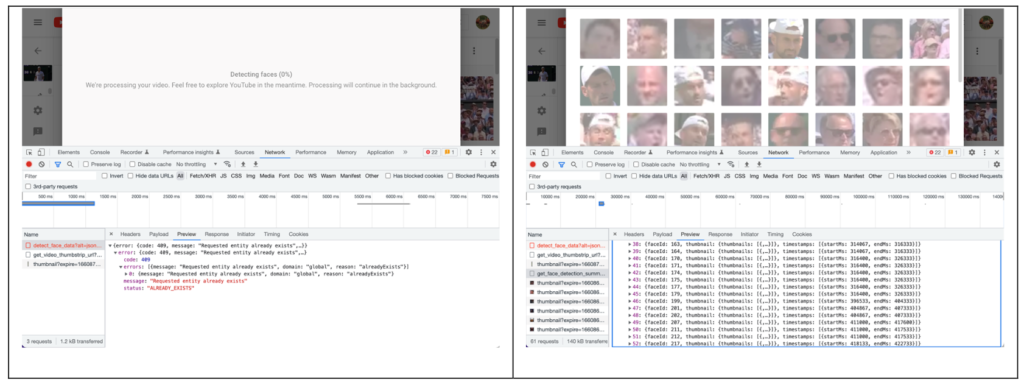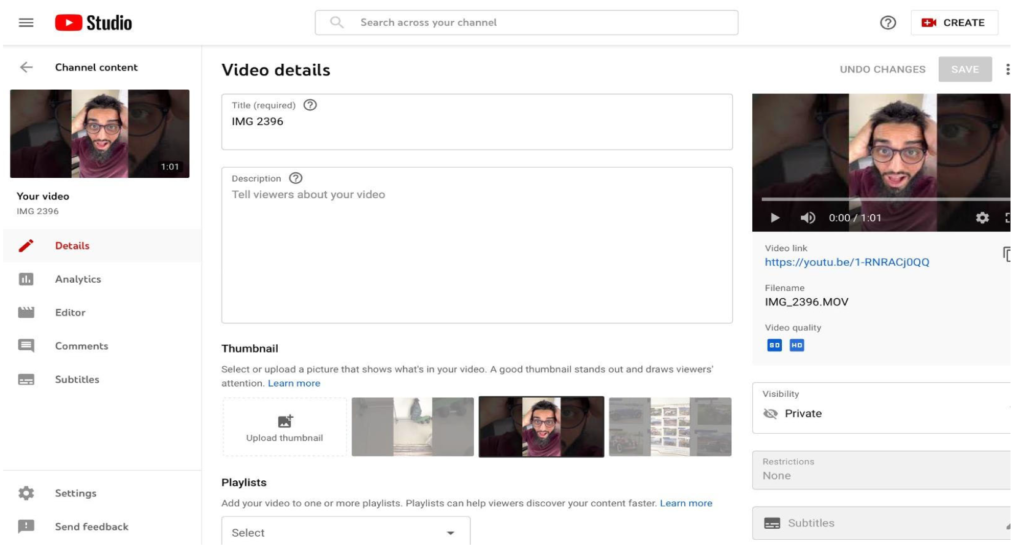Recent BIPA Class Action Accuses YouTube of Illegally Collecting and Storing Facial Scans
A recent BIPA class action filed on August 30, 2022 accuses Youtube’s “Face Blur” tool of collecting Illinois users’ facial biometric information without consent. Allegedly, Youtube’s “Face Blur” tool allows an uploader to select and blur faces that appear in the video.
The 28-page complaint alleges that YouTube’s “Face Blur” tool captures and stores facial geometries without consent or disclosure. The suit further alleges that the largest video-sharing platform does not publish a true retention schedule stating how long they will retain the data.
“When a YouTube video creator chooses to run the “Face Blur” tool on a video, Defendants scan the entire video to detect all unique faces within the video,”
Marschke v. YouTube, LLC et al. – 3:22-cv-02022

YouTube’s auto-generating thumbnail tool, which scans uploaded videos for facial expressions, unlawfully captures and stores biometric identifiers, the suit alleges. The complaint alleges that using thumbnail images with expressive faces will get the most clicks and views.

“This indicates that, as part of the Thumbnail Generator, Defendants have a software program that has been trained to detect faces. This software program would require scans of facial geometry from YouTube videos as a necessary input in order to train this software.”
Complaint alleges Youtube retains the facial biometric information for longer than just a few hours
The “Face Blur” tool uses facial recognition technology to scan videos, locate human faces, and store facial geometry scans. The “Face Blur” tool assigns a unique “faceID” to each detected face, the complaint alleges. YouTube will blur any matching facial geometry on its servers when a user selects a “faceID,” according to the lawsuit.
YouTube claims that each face stored on their servers has an “expiry date within a few hours of running the face detection.” However the filing claims that YouTube is “actually storing the scan of face geometry for a longer period of time, and possibly permanently.”
“Consequently, Defendants permanently store scans of face geometry or biometric information so that YouTube users do not need to re-run the ‘Face Blur’ tool.”
Are other businesses also collecting your biometric data, possibly without consent? Our investigation on how your Biometric Data Privacy might be at risk can help you in securing your biometric data privacy.
Want to stay up to date on class actions that concern you? Register for the free weekly newsletter from ClassActionNews.com.
You can also secure your Biometric Data Privacy
If Youtube collected, captured, or otherwise obtained any Illinois resident’s faceprint or facial template, they are covered under this suit. Your biometric privacy may be at risk.
Illinois’ Biometric Information Privacy Act allows affected consumers to recover up to $5,000 for each instance of violation they suffered.
Similarly, other states have also enacted laws to protect their residents’ biometric data privacy, like California’s CCPA and CPRA.
We can help you investigate your potential BIPA claims. Please contact us to consult a class action lawyer at ClassActionNews today.
Subscribe Now to our weekly Newsletter and stand a chance to recover up to $5,000 too.
